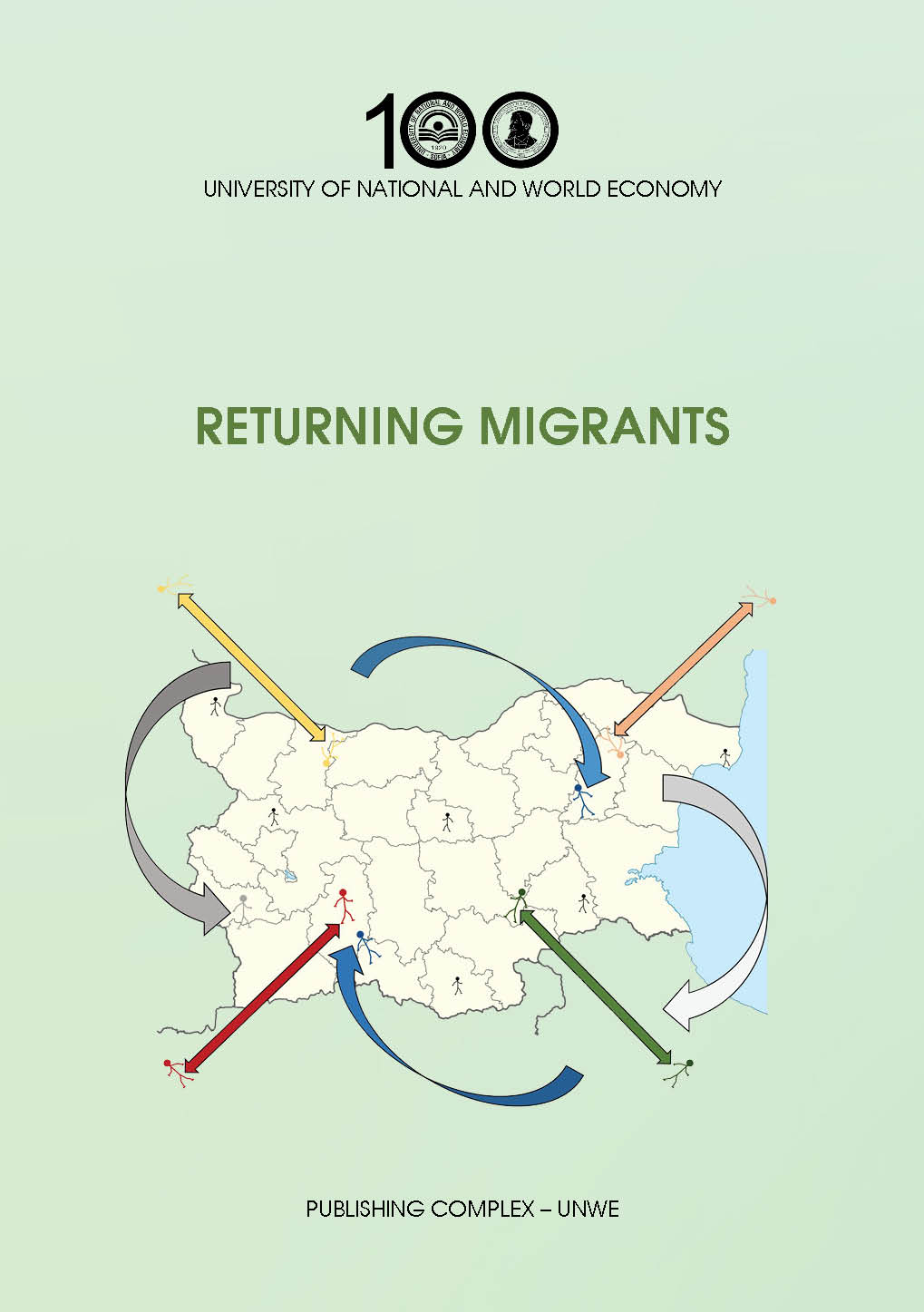Returning Migrants
Returning migrants
Author(s): Andrey Nonchev, Vesselin Mintchev, Irena Zareva, Venelin Boshnakov, Maria Bakalova, Mihaela Misheva, Marieta Hristova
Contributor(s): Ivan Gospodov (Translator)
Subject(s): Social Sciences, Sociology, Methodology and research technology, Migration Studies
Published by: Университет за национално и световно стопанство (УНСС)
Keywords: returning migrants; theoretical approaches to remigration; reasons and motives for return; segmentation and stratification of returning migrants; social and economic effects of the return; policies on remigration and reintegration of returned migrants
Summary/Abstract: The book “Returning migrants” makes an attempt to compensate to some extent for the deficit of information in regard to migrants, returning permanently or temporarily to Bulgaria. Its main goal is to present three key aspects of the range of issues, related to the return: firstly, the theoretical ideas and the methodological principles of the research and conceptualization of remigration; secondly, the methodology and the findings of the quantitative and qualitative empirical studies of returning migrants in Bulgaria, conducted by the authoring team; thirdly, the principles, contents and challenges before international and national policies on return and reintegration. The first chapter of the monograph presents different theoretical paradigms and methodological approaches to conceptualising migration and remigration. The theoretical interpretation of an intensifying international mobility is a serious challenge before researchers. The theoretical paradigms and the methodological approaches to understanding and explaining migratory processes vary within a very broad range. Most of the attempts to theorise return migration make references to the more general theories of international migration. The explication of theoretical and methodological prerequisites of the monographic study is a mandatory condition for the conduct of a controlled self-reflective research process. This is the reason for making in the first chapter of the monograph a summarized review of the theoretical orientations, in the context of which both the phenomena of international migrations as a whole and of the return ones in particular are being interpreted.The second chapter of the monograph presents both the methodology of the quantitative and qualitative empirical studies of remigration to Bulgaria, conducted by the authoring team, as well as their findings. A comprehensive analytical framework and a methodology for examination of the phenomenon of „returning migrants“ is developed, based on the achievements of contemporary sociological and economic thought with a focus on the Bulgarian specifics of the issues. The heterogeneity, complexity and mutual intertwining of migratory processes and in particular of remigration, are conceptualized using the summary terms „segmentation“ and „stratification“ of returning migrants. The following issues are being analysed: various spatial and temporal migratory trajectories; diverse causes and motives for the migratory movements and return; success and sustainability of the return; segmentation and structural characteristics of returning migrants depending on their employment sphere, profession, education, qualifications, income levels, property etc.; vertical social stratification of returning migrants from the perspective of their socio-economic status and mobility; socio-economic effects of the return on the labour market, economic activity, quality of life. In the third chapter of the monograph, the international and national legal frameworks and the policies implemented on migration and return are presented and critically analysed. Problems are identified, which the policies encouraging the remigration of Bulgarian citizens are facing, their effectiveness and the possibility of successful reintegration of those returning temporarily or permanently are discussed. A number of good practices are shared, which stimulate successful return and support the adaptation of the returnees (the case study of Poland is reviewed in a special annex). Ideas are being proposed for optimization of the policies on return and reintegration with the view of accomplishment of their economic, social and demographic goals.
- Print-ISBN-13: 978-619-232-421-6
- Page Count: 368
- Publication Year: 2020
- Language: English
- eBook-PDF
- Introduction
- Table of Content

